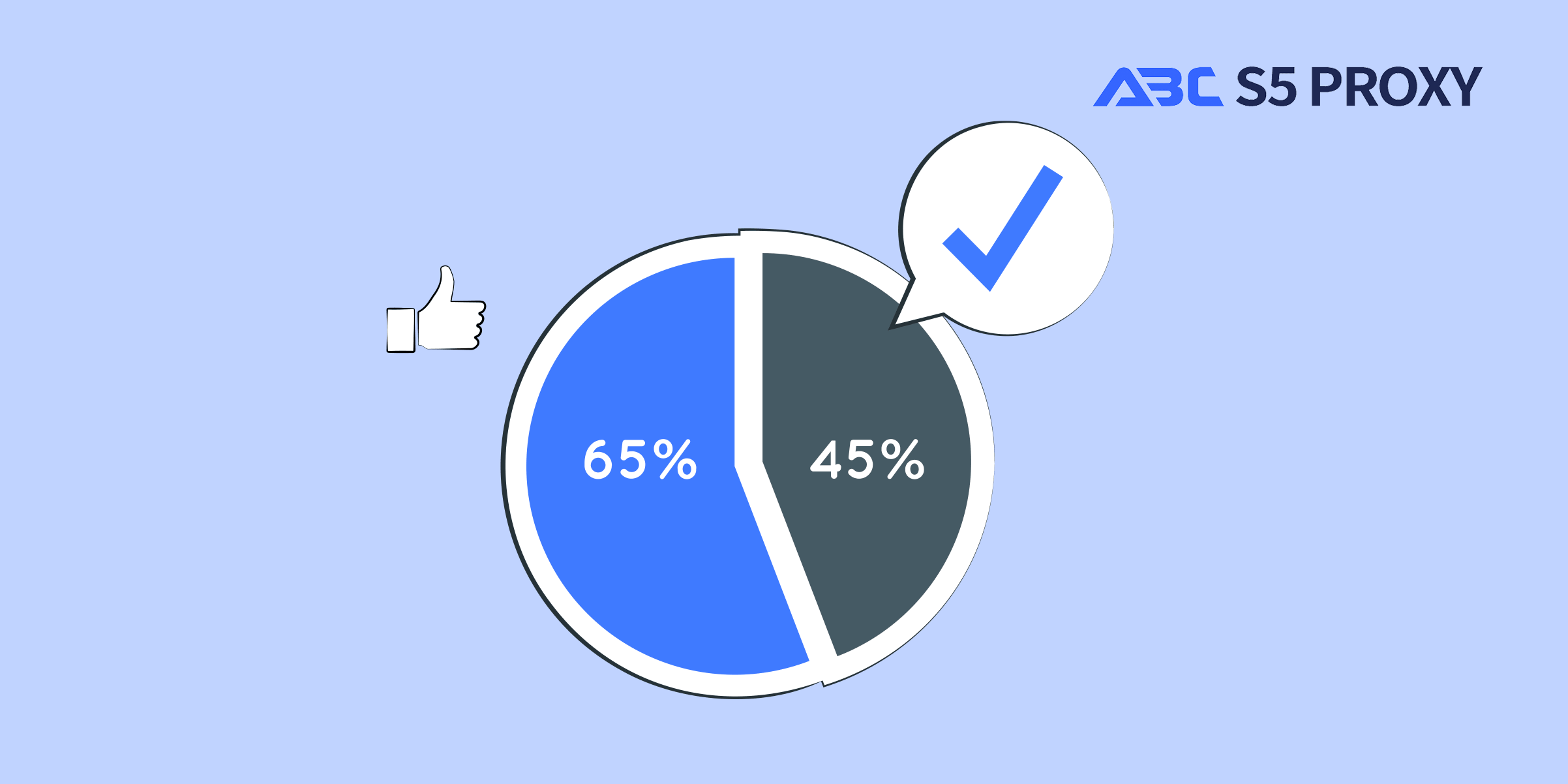Residential Proxies
Allowlisted 200M+ IPs from real ISP. Managed/obtained proxies via dashboard.

Proxies
Residential Proxies
Allowlisted 200M+ IPs from real ISP. Managed/obtained proxies via dashboard.
Residential (Socks5) Proxies
Over 200 million real IPs in 190+ locations,
Unlimited Residential Proxies
Use stable, fast, and furious 700K+ datacenter IPs worldwide.
Static Residential proxies
Long-lasting dedicated proxy, non-rotating residential proxy
Dedicated Datacenter Proxies
Use stable, fast, and furious 700K+ datacenter IPs worldwide.

Web Unblocker
View content as a real user with the help of ABC proxy's dynamic fingerprinting technology.
Proxies
API
Proxy list is generated through an API link and applied to compatible programs after whitelist IP authorization
User+Pass Auth
Create credential freely and use rotating proxies on any device or software without allowlisting IP
Proxy Manager
Manage all proxies using APM interface

Proxies
Residential Proxies
Allowlisted 200M+ IPs from real ISP. Managed/obtained proxies via dashboard.
Starts from
$0.77/ GB
Residential (Socks5) Proxies
Over 200 million real IPs in 190+ locations,
Starts from
$0.045/ IP
Unlimited Residential Proxies
Use stable, fast, and furious 700K+ datacenter IPs worldwide.
Starts from
$79/ Day
Rotating ISP Proxies
ABCProxy's Rotating ISP Proxies guarantee long session time.
Starts from
$0.77/ GB
Static Residential proxies
Long-lasting dedicated proxy, non-rotating residential proxy
Starts from
$5/MONTH
Dedicated Datacenter Proxies
Use stable, fast, and furious 700K+ datacenter IPs worldwide.
Starts from
$4.5/MONTH
Knowledge Base
English
繁體中文
Русский
Indonesia
Português
Español
بالعربية

Title: Dedicated IP vs. Shared IP: Understanding the Differences
In the world of web hosting, the terms "dedicated IP" and "shared IP" are often used when discussing the types of IP addresses available for websites. While both types serve the same fundamental purpose of identifying a specific server on the internet, they have distinct differences in terms of functionality, security, and performance. In this blog post, we will delve into the differences between dedicated IP and shared IP to help you understand which option may be more suitable for your website needs.
A dedicated IP address is an exclusive address assigned to a single website or server. This means that the website has its own unique numeric identifier, separate from other websites hosted on the same server. Dedicated IPs are often preferred by businesses or websites that require a high level of security, need to run specific applications, or wish to improve their website's performance.
1. Improved Security: With a dedicated IP, your website is less vulnerable to attacks that target other websites sharing the same server. This is particularly important for e-commerce websites or those handling sensitive information.
2. Better Email Deliverability: Some email service providers require a dedicated IP to ensure reliable email deliverability. This is crucial for businesses that rely on email marketing campaigns.
3. Access to Server Resources: A dedicated IP allows you to have full control over the server resources, enabling you to customize settings and optimize performance according to your specific requirements.
In contrast, a shared IP address is a single address used by multiple websites hosted on the same server. This is a common practice among web hosting providers to reduce costs and efficiently utilize resources. Shared IPs are suitable for small websites, blogs, or personal projects that do not require dedicated resources or heightened security measures.
1. Cost-Effective: Shared IPs are more cost-effective as multiple websites share the same IP address, reducing the overall hosting expenses.
2. Ease of Setup: Shared IPs are easy to set up and manage, making them ideal for beginners or individuals with limited technical knowledge.
3. Suitable for Low-Traffic Websites: If your website does not receive high traffic volume or require specialized configurations, a shared IP may be sufficient for your needs.
When deciding between a dedicated IP and a shared IP for your website, consider the following factors:
1. Security Requirements: If your website stores sensitive data or conducts online transactions, a dedicated IP is recommended for enhanced security.
2. Performance Needs: Websites that experience high traffic volumes or require specific server configurations may benefit from a dedicated IP to ensure optimal performance.
3. Budget Constraints: For individuals or small businesses with limited budgets, a shared IP can provide a cost-effective hosting solution without compromising functionality.
In conclusion, the choice between a dedicated IP and a shared IP depends on your website's specific requirements, security considerations, performance needs, and budget constraints. Understanding the differences between the two types of IP addresses will help you make an informed decision that best suits your website hosting needs.
Featured Posts
Popular Products
Residential Proxies
Allowlisted 200M+ IPs from real ISP. Managed/obtained proxies via dashboard.
Residential (Socks5) Proxies
Over 200 million real IPs in 190+ locations,
Unlimited Residential Proxies
Use stable, fast, and furious 700K+ datacenter IPs worldwide.
Rotating ISP Proxies
ABCProxy's Rotating ISP Proxies guarantee long session time.
Residential (Socks5) Proxies
Long-lasting dedicated proxy, non-rotating residential proxy
Dedicated Datacenter Proxies
Use stable, fast, and furious 700K+ datacenter IPs worldwide.
Web Unblocker
View content as a real user with the help of ABC proxy's dynamic fingerprinting technology.
Related articles

How does the ChatGPT RAG example improve information processing capabilities
Analyze the actual application scenarios of ChatGPT combined with Retrieval Augmented Generation (RAG) technology, explore its value in knowledge integration and data acquisition, and understand how abcproxy provides underlying support for the RAG system.

How does Best Socks5 Proxy ensure anonymous network needs
This article explores the core value of Socks5 proxy in anonymous networks and analyzes how abcproxy high anonymous proxy meets diverse security needs.

How to remove website access restrictions
This article analyzes the technical principles and mainstream solutions of website access restrictions, and explores the core role of proxy IP in bypassing regional blocking and anti-crawling mechanisms. abcproxy provides multiple types of proxy IP services to help you break through network restrictions efficiently.